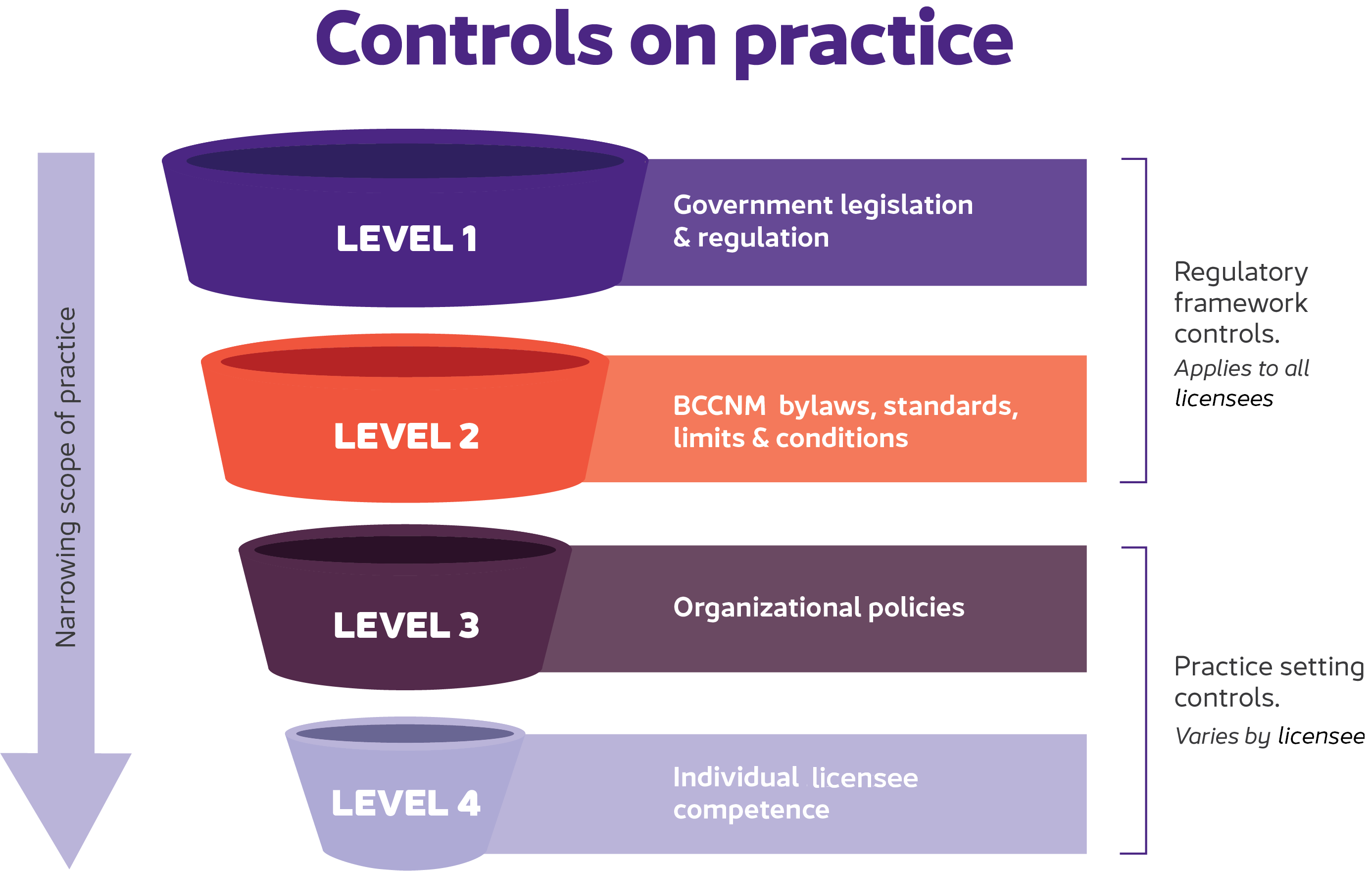The practice of nursing and midwifery is shaped by more than just what's legally allowed. It is defined by four controls on practice: legislation, BCCNM bylaws and standards, employer policies, and the nurse or midwife's indiviual competence.
While regulations may authorize certain activities, licensee can only perform them if permitted by all four controls on practice. Each control may narrow what a licensee is allowed to do, but none can expand beyond what is allowed by the level below.

Level 1: Legislation and regulations
This level sets the legal foundation for practice in B.C., through the
Health Professions Act (HPA) and the
Health Professions and Occupations Act (HPOA) and nursing regulations. These laws ensure that all nurses and midwives provide safe, ethical, and competent care. The legislated scope applies to all licensees, regardless of setting (e.g., hospital, community, long-term care, or self-employment).
Level 2: BCCNM bylaws, standards, limits, and conditions
BCCNM sets practice standards and may place limits or conditions on certain activities authorized in the regulation. Bylaws may also set additional requirements for practice.
Example: BCCNM may require additional education before you are authorized to perform specific activities, like venipuncture.
Level 3: Organizational policies
Employers may create workplace policies that limit or specify how certain activities are performed. Sometimes, employer policies are more restrictive than legislation or BCCNM standards.
Employer's job descriptions should clearly outline a nurse's expected responsibilities within a specific role. Employers may require additional education or certification for nurses to perform certain activities.
If you are self-employed, you are considered the employer. It is therefore your responsibility to develop appropriate policies and procedures to inform your practice and that of your employees.
Level 4: Individual nurse or midwife competence
While legislation/regulations, BCCNM standards, and employer policies define what licensees are allowed to do, a licensee's individual competence determines whether the licensee can safely perform an activity.
Competencies are unique to each nurse or midwife and expand with additional education and experience.
The controls on practice help ensure that every activity a licensee performs is safe, appropriate, and within their legal scope of practice. By walking through each level—legislation and regulation, BCCNM standards, employer policies, and their own competence—licensees can determine whether they are authorized and safe to proceed. The final consideration before performing any activity is whether it is in the best interests of the client. Remember, just because you
can doesn't mean you
should.